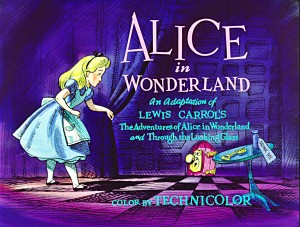I’m not sure how much the pronunciation of numbers is taught around the world, but it is not completely straightforward. If we start counting, from one upwards, there is no problem: one, two, three, … ninety-nine, one hundred. But then, would you go on with “one hundred and one” or “a hundred and one”? In ‘ordinary’, unemphatic British English, I suspect that for all numbers between 100 and 199, “a” would be more usual than”one”. In a more deliberate style, for instance the announcer at a darts or snooker match, “one” would be the norm: “one hundred and eighty” (maximum score in darts) or “one hundred and forty-seven” (maximum break at snooker) with appropriately exaggerated intonation. The same is true (“a” rather than “one”) for numbers between 999 and 2000.
These are the pronunciations for ‘pure’ numerals. But when we talk about a specific set of numbers, usage changes. The designations of roads, for example. A1, A10, A99 are ‘ay one’, ‘ay ten’, ‘ay ninety-nine’. Go above that, however, and although the round hundreds (100, 200, 1000 etc) are similarly pronounced: “ay one hundred”, B1000 ‘bee one thousand” (and I think ‘one’ is more normal than ‘a’ here), those in between are split into their component parts: B656 is ‘bee six five six’, A1307 is ‘ay one three oh seven’.
Year names is another series where the strict numerical pronunciation doesn’t apply. All years between 1001 and 1999 were simple: split in two and pronounce each half as a numeral: ten sixty-six; twelve fifteen, eighteen oh five. The BBC had a lot of discussion over the pronunciation of 2000 and onwards. 2001, following the Stanley Kubrick film, was always going to be “two thousand and one”, but how about the others? 2000 is almost invariably not called “two thousand”, but “the year two thousand”. Some Radio 4 newsreaders were criticized for pronouncing 2002, -03, … as “twenty oh two, … oh three” instead of “two thousand and two” etc. But then the Olympics held in London were always the “twenty twelve” Olympics. We now seem to have two acceptable ways of pronouncing third millennium year names. This parallels the French practice, which has always had the two possibilities : “dix-neuf cent(s) quatre-vingts” or “mille neuf cent(s) quatre-vingts” for 1980. The years up to 1000 are not so obvious, perhaps because they were so long ago: did the Romans leave Britain in “four ten” or “four hundred and ten”? Did the Emperor Justinian (the last Roman emperor to speak Latin as his native tongue) die in “five six five”, “five sixty-five” or “five hundred and sixty-five”?
Vehicle numbering is also not straightforward: Peugeot cars for instance are all given numbers, and the digits are pronounced separately: does anyone remember the sporty “two oh four”? The long-lived “four oh four”? Boeing aircraft numbers are also (in Britain) pronounced digit by digit: “seven oh seven”, “seven three seven”, even “seven seven seven”, but Airbus are not: A320: “ay three twenty”, A380: “ay three eighty”.
Telephone numbers: they are pronounced as single digits, but if six digits, then as two intonational groups of three (not as in many languages, as three groups of two). London numbers have eight digits: two groups of four (the first ending in a rise, the second in a fall). The area code (or if a non-geographical code, e.g. 0800, the indicator of the category of number: free, premium or mobile) forms an initial third intonational group, also ending in a rise.
Numbers between 0 and 1: all digits should be separately pronounced. An oddity is that 0.206 will often be pronounced “nought point two oh six”, with the two zeroes (yet another way of pronouncing either of the 0 symbols) treated differently.
These comments may not accurately represent other parts of the English-speaking world, but they are certainly true of many if not most speakers of British English.

